Many business owners find it challenging to determine the “right” way to fund their company’s growth. For example, applying for a loan to pay for equipment sounds smart. But is taking on debt the best long-term strategy for funding a riskier plan, like an acquisition? How can you compare debt vs equity financing? What is the difference, and which one is best for you?
Here is the short answer.
Debt financing is when you borrow money and pay it back over time with interest. Equity financing is when an investor agrees to give you the money you need, but instead of paying it back, you give them part ownership in your business. So, the main difference is what you give up in exchange for the funds.
For most companies, however, it is not about debt versus equity. Instead, it is about striking the right balance between debt and equity so you can run your business effectively and achieve your goals. To help you determine the right approach for you, let’s look at each type of financing, including the pros and cons.
What is Debt Financing
Debt financing is a straightforward arrangement whereby a lender gives you funds, and you pay the lender back over time with interest. Before agreeing to the loan, lenders check your company’s financial history by reviewing the documents you provide (income statement, balance sheet, tax returns, bank statements, etc.). Then they set the terms of the loan that they are willing to make based on the amount of risk. These terms include the monthly interest rate, loan duration, etc.
Secured vs Unsecured Debt
Secured business loans are comparable to mortgages or auto loans in that an asset is held as collateral, and the lender can take possession of that asset if you fail to pay.
Unsecured loans, on the other hand, are not backed by specific company assets. Instead, the lender relies primarily on your financial history when deciding whether to lend you money. Since this is riskier for the lender, they may charge a higher interest rate or ask you to guarantee repayment personally. That means your business and personal finances are on the line if you don’t pay.
Whether your loan is secured or unsecured, business loans typically involve an agreement to certain terms and conditions we call “covenants.” These are essentially rules about how you will run your business for the duration of the loan, similar to how you agree to insure your home when you take out a mortgage.
It’s important to know that covenants are a serious commitment. They usually mandate a certain level of reporting or profitability (sometimes both) while the debt is outstanding. Failure to comply could put the loan in default and damage your financial reputation.
The confusing thing about debt financing is the dizzying array of options. Here are just a few of them:
- Bank Loans – you can take out a personal loan, a secured business loan, or set up lines of credit, for example.
- Credit Cards – As long as you can make your minimum payment each month, a credit card can help manage your cash flow because the payments are flexible.
- Government-backed loans – such as those available through the Small Business Administration (SBA).
- Asset-Backed Loans – to purchase specific assets, like equipment or office space.
When comparing debt vs equity financing, it may be helpful to know that there is no reason to fear debt. On the contrary, it is a completely sensible option, as long as you can service the debt while continuing to grow your business. If taking on debt will inhibit your cash flow and ability to grow, however, you may need to consider an alternative funding source.
What is Equity Financing
Equity financing is when people or companies invest in your business in exchange for part ownership (equity). It is an alluring source of capital because you can get the money you need to grow, and you don’t have to pay it back. So, it doesn’t affect your cash flow or put your personal finances at risk.
However, since investors want to see a return on their investment and gain certain legal rights, you also give up control. Although some investors take a purely financial interest in the company and want little more than reporting, others expect to get involved in your decision-making. Some business owners welcome such involvement, but others find it intrusive. So, it is important to decide what you want and to pursue the right kind of investors for your needs.
For example, here are a few types of investors you might consider:
- Angel Investors –wealthy individuals or even groups of individuals who seek opportunities to invest in startups.
- Business Accelerators and Incubators – organizations that provide financing, advice, training, office space, and similar resources to startups.
- Venture Capital / Private Equity – people or companies that seek investment opportunities with businesses with high growth potential.
When considering equity financing, another thing to keep in mind is that it is time-consuming and expensive to pursue. There will be months of planning, researching, and preparation required before you will be ready to create a pitch deck and conduct meetings with potential investors. To continue the important work of running the company, many business leaders choose to bring in outside help, such as a fractional CFO who has successfully raised capital for other organizations and can lead the effort.
What About Hybrid Financing?
When exploring debt vs equity financing, you will inevitably encounter hybrid financing. Hybrid financing is a middle ground of sorts that combines elements of both debt and equity financing. It is a viable alternative particularly suitable for companies that are growing quickly, tough to valuate, and need something more flexible yet easier to pursue than traditional equity funding.

Hybrid financing vehicles include convertible debt, SAFE notes, and KISS securities. They offer businesses the money they need with limited (if any) payments required in exchange for future equity in the company. The costs are low, but there is risk involved, and you must be willing to give up some ownership. So, like any type of financing, weigh your options carefully and read the fine print.
What are the Pros and Cons of Debt and Equity Financing?
It helps to establish some criteria to use when evaluating the different sources of capital. Therefore, when I work with clients, I start by asking them the following questions:
- How much money do you need, and how do you plan to use it?
- When do you need the funds?
- How much are you willing to pay in exchange for the funds (interest, equity, etc.)?
- How much effort or risk are you willing to absorb?
Another thing worth mentioning when comparing corporate debt vs equity options is that you must be mindful of your debt-to-equity ratio. That is a measure of how much debt you have, compared to the value of your assets, i.e., leverage. Future investors will assess this ratio to determine how risky your company is as an investment option. A good financial advisor can help you choose the right funding for you while ensuring that you develop a future-proof capital structure.
Once you have established your criteria, you will have the context you need to consider the following pros and cons of debt financing vs equity financing:
Debt vs Equity Financing Comparison
Debt Financing | Equity Financing | |
Pros | The lender does not have a claim to the company’s equity, so getting a loan will not dilute the owner’s stake in the company. | The business owner doesn’t have to worry about the interest and covenants that are typical of business loans. |
You control how the funds get used. The lender could present some restrictions but typically has no say in how you run your business. | Investors generally take a long-term view. As such, they don’t expect a return on investment immediately. | |
The principal and interest are usually set amounts that you can build into your cash flow forecast and prepare for, except in the case of variable-rate loans. | You won’t need to channel any profits into debt payments, which means more cash will be available to fuel your company’s growth. | |
If you take out a business loan (not a personal one), you can include the interest rate you pay in your company’s tax deductions. | You can forge strong and beneficial relationships with equity investors. Investors can give you exposure to their networks of industry connections and can be a great source of experience, counsel, and insight. | |
If your company has a strong financial history, you can borrow the money you need relatively quickly. | ||
Cons | A big factor to consider is the capital requirements of debt financing. Since you must make regular payments, debt will affect your cash flow. If this will inhibit your ability to grow, debt may not be a sensible option for you. | Since equity investors expect to receive ownership shares of the company in return for their investment, you must be willing to dilute your own shares and give up some control. This is a big call to make. |
If you end up with too much debt on your balance sheet, you may be seen as “high risk” by potential investors. This, in turn, can hinder your ability to raise capital via equity financing in the future. | Along with sharing control, you’ll also be sharing profits. | |
The company’s assets could be held in collateral to the lender. | You will likely have to consult with investors before making certain business decisions. This can slow you down and create the potential for disagreements. | |
The process for raising equity financing is usually more involved, expensive, and time-consuming than taking out a loan. |
The Bottom Line: Is it Better to Finance with Debt or Equity?
So, is debt better than equity? Arguably, yes. Debt is a better way to finance your business because it is less expensive than equity, interest payments qualify as tax deductions, and it allows you to maintain control of your business. That makes it a reasonable option for large and small businesses alike.
However, there is a reason why companies consider alternative funding sources. Business loans require repayment. It’s that simple. If you cannot afford to service the loan and grow your business, you must consider other options.
When is equity financing better? Seeking funds from equity investors is a smart choice if you have a great product with lots of potential and are willing to give up some control in your business to pursue your growth plans.
Remember, it isn’t about debt vs equity financing for most companies. It’s about striking the right balance between debt and equity for your business. So, contact your financial advisor or tap into our fractional CFO services to determine the best approach for you.




